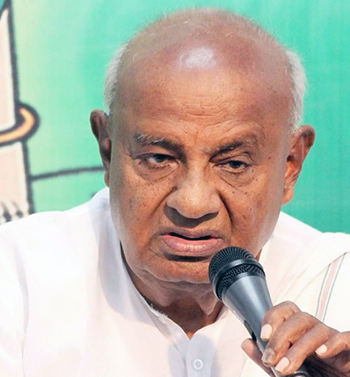Former Prime Minister and Janata Dal (Secular) supremo H D Deve Gowda has urged the Election Commission to revert to ballot papers in upcoming Karnataka Assembly polls to ensure transparency.

Speaking to media persons in Hassan on Saturday Gowda said that was not able to understand why Election Commission was hell-bent on using electronic voting machines (EVMs) despite questions being raised about the accuracy and the reliability of the machines.
"Ballot papers are being used in the elections in many countries. A few countries stopped using EVM following the complaints about its credibility. Despite complaints about the functioning of the EVMs, the Election Commission is still adamant about using them," he said.
The then Chief Election Commissioner T N Seshan introduced EVMs as part of electoral reforms in the early 1990s. EVMs used in Gujarat Assembly polls have been brought to the state.
Post elections, I will spend most of my time in the constituency, meeting the people. I will go mad, if I am not meeting people, interacting with them. This is the reason why Ramakrishna Hegde used to call me '24-hour politician', he said.





Comments
Add new comment